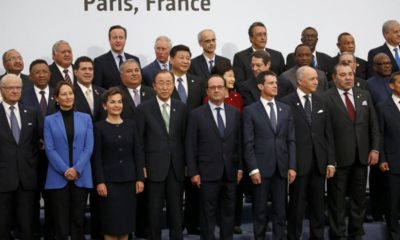In a significant move toward a greener and more sustainable future for Nigeria’s transportation sector, the Presidency has announced plans to launch approximately 2,700 Compressed Natural Gas (CNG)-powered buses and tricycles before May 29, President Bola Tinubu’s first year in office.
The ambitious initiative, spearheaded by the Special Adviser to the President on Information and Strategy, Mr. Bayo Onanuga, aims to address pressing issues of rising fuel costs, environmental pollution, and the need for more efficient mass transit options across the country.
With the impending rollout, Nigeria is poised to take significant strides towards joining the league of nations that have embraced CNG as a viable alternative fuel source for public transportation.
The move comes as part of the Presidential CNG Initiative, launched by President Tinubu in October 2023, shortly after the removal of petrol subsidy.
The Presidential CNG Initiative, designed to deliver cheaper, safer, and more climate-friendly energy options, has been allocated a substantial budget of N100 billion from the palliative budget.
This funding will support the purchase of 5,500 CNG vehicles, including buses and tricycles, along with 100 electric buses and over 20,000 CNG conversion kits.
Also, the initiative encompasses the development of CNG refilling stations and electric charging stations nationwide, ensuring that the infrastructure is in place to support the transition to cleaner energy sources.
Mr. Onanuga emphasized that all necessary preparations have been made for the delivery of the first set of critical assets for deployment and launch of the CNG initiative ahead of the first anniversary of the Tinubu administration.
Approximately 2,500 tricycles are expected to be ready before May 29, 2024, with plans to deliver 200 units of buses within the same timeframe.
The deployment of CNG buses and tricycles marks a significant milestone in Nigeria’s energy transition journey.
It not only reduces the country’s dependence on traditional fossil fuels but also contributes to mitigating environmental pollution and improving air quality in urban centers.
In addition to the rollout of CNG vehicles, the initiative includes partnerships with the private sector to establish conversion workshops and refueling sites across 18 states before the end of 2024.
These efforts underscore the collaborative approach taken by the government and industry stakeholders to facilitate the adoption of CNG technology and drive sustainable growth in the transportation sector.
As Nigeria prepares to celebrate President Tinubu’s first year in office, the rollout of 2,700 CNG-powered vehicles stands as a testament to the government’s commitment to fostering innovation, promoting environmental stewardship, and improving the lives of its citizens through transformative initiatives in the energy sector.

 Forex3 weeks ago
Forex3 weeks ago
 Naira3 weeks ago
Naira3 weeks ago
 Billionaire Watch2 weeks ago
Billionaire Watch2 weeks ago



 Naira3 weeks ago
Naira3 weeks ago






 Naira2 weeks ago
Naira2 weeks ago




 Naira1 week ago
Naira1 week ago




 Naira4 weeks ago
Naira4 weeks ago






 Naira1 week ago
Naira1 week ago
























